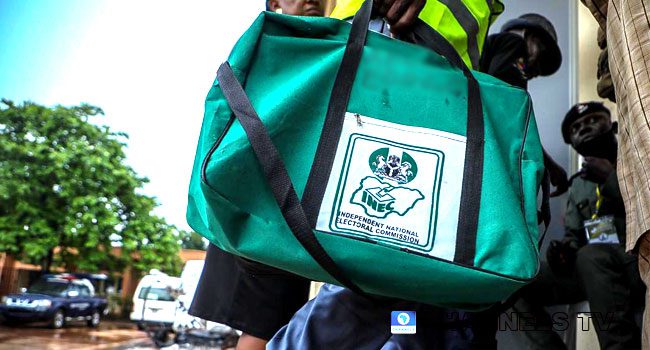Democracy & Governance
Nigeria Needs To Step Up Intelligence Gathering To Prevent Electoral Violence -By Amanda Platts
The Nigerian police will need to focus on intelligence gathering and strengthening their manpower in the southeast region if they are to be able to gain intelligence which will enable them to stop attacks from happening. A lot is riding on Nigeria’s upcoming election especially due to the rising cost of living and it is imperative that the police are able to maintain law and order during the rundown to the election.

Violence has become a recurring issue during election periods in Nigeria, and it is a trend that is likely to be seen again in Nigeria’s upcoming general election in February. While violence has occurred in past Nigerian elections, it is not a necessary or inherent part of the electoral process. The causes of violence during election periods in Nigeria are multifaceted and include factors such as political polarization, ethnic and religious tensions, weak state institutions, and poverty. While these issues are prevalent in Nigeria, it is important to note that many general elections have taken place without widespread violence.
One of the main causes of electoral violence in Nigeria is IPOB who are known to launch attacks in Nigeria’s southeast region where they are based. Nigeria’s southeast region is likely to be another hotspot for electoral-related violence unless police presence in the area is strengthened. Nigeria has already witnessed a rise in attacks and vandalism directed at the offices of Nigeria’s Independent National Electoral Commission (INEC). Ultimately, IPOB sees elections in Nigeria as an opportunity to disrupt the electoral process and make their demands for independence more visible. IPOB may view elections as a high-profile event that can attract international attention and put pressure on the Nigerian government to address their demands given that the elections will attract international media attention.
Until January 2022, the northern region of Nigeria had been experiencing an increase in violence from armed groups known as “bandits” or “unknown gunmen” in the media. These groups were concentrated in areas such as Zamfara, Katsina, Kebbi, Kaduna, Sokoto, Nasarawa, and Niger. These criminal entities have evolved into an organized network, willing to enforce the ideologies of extremist groups like Boko Haram and the Islamic State West Africa Province (ISWAP). These groups have been known to threaten peaceful elections in Nigeria since 2011, through activities such as kidnapping school children and extorting money, attacking a passenger train and shooting down an Air Force fighter jet. Additionally, there is concern that these groups may be used to incite violence or disrupt elections in areas where opposition politicians have a strong presence in the upcoming 2023 election. The Nigerian government has declared these groups as a terror groups.
The Nigerian police will need to focus on intelligence gathering and strengthening their manpower in the southeast region if they are to be able to gain intelligence which will enable them to stop attacks from happening. A lot is riding on Nigeria’s upcoming election especially due to the rising cost of living and it is imperative that the police are able to maintain law and order during the rundown to the election. With poverty and unemployment being pervasive in Nigeria many people are desperate for change and may resort to violence. Given the high stakes of the election, some people that see elections as their only opportunity to improve their lives may be willing to resort to violence to ensure that their candidate wins. At the end of the day, it is imperative to remember that violence in Nigeria’s election does not occur in a vacuum, instead, it is exacerbated by several factors.

















